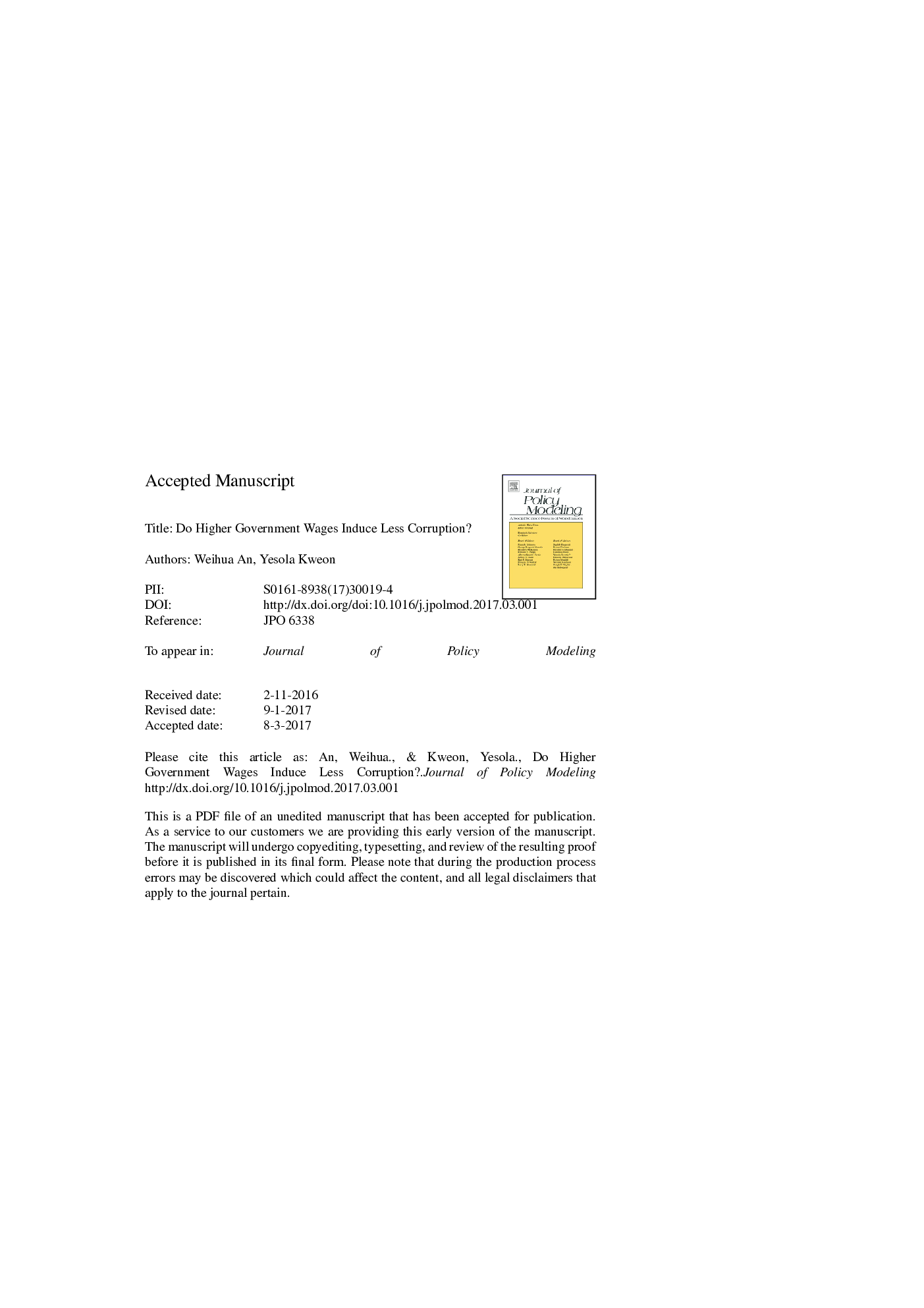| Article ID | Journal | Published Year | Pages | File Type |
|---|---|---|---|---|
| 7369204 | Journal of Policy Modeling | 2017 | 31 Pages |
Abstract
Prior studies have lent mixed evidence on the effectiveness of increasing government wages to reduce corruption. Based on a dynamic principal-agent model, this study uses cross-country data over ten years (1999-2008) and various statistical models to present updated evidence. Our analyses show that increasing government relative wage by one unit (i.e., by the amount of the average manufacturing wage in a country) is associated with a decrease in the level of perceived corruption by 0.26 units. The effect appears to be particularly significant for non-OECD countries (where corruption is more rampant) or for countries with a relatively low government wage. The overall policy implication is: increasing government wages can help curtail corruption, but solely relying on increasing government wages to reduce corruption can be very costly. For example, to reduce the level of corruption in non-OECD countries to that in OECD countries, the government wage would have to be increased by about seven times.
Related Topics
Social Sciences and Humanities
Economics, Econometrics and Finance
Economics and Econometrics
Authors
Weihua An, Yesola Kweon,
